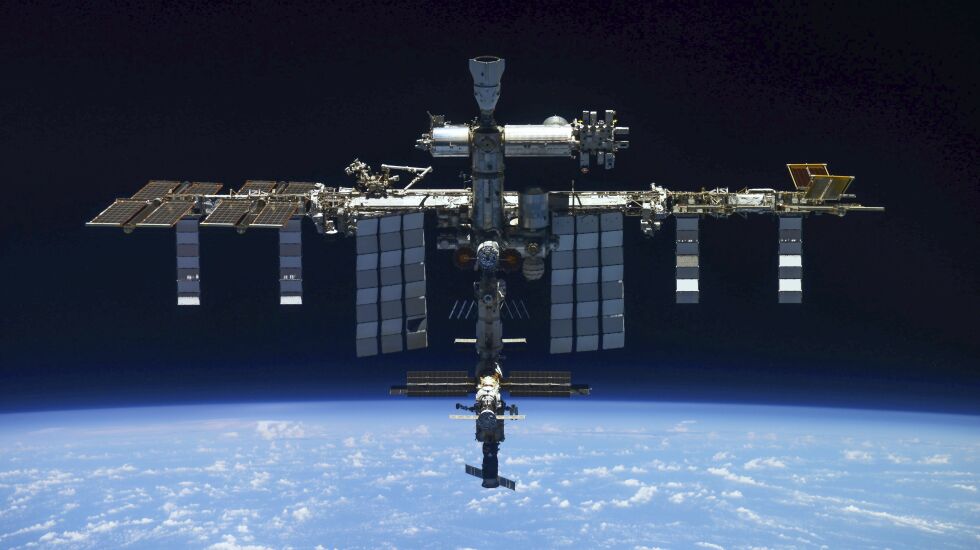
Researcher Dhruv Sareen’s own stem cells are now orbiting the Earth with a mission: to test whether they’ll grow better in zero gravity.
Scientists at Cedars-Sinai Medical Center in Los Angeles are trying to find new ways to produce huge batches of a type of stem cell that can generate nearly any other type of cell in the body — and potentially be used to make treatments for many diseases. The cells arrived on a supply ship last weekend at the International Space Station.
“I don’t think I would be able to pay whatever it costs now” to take a private ride to space, Sareen said. “At least a part of me in cells can go up!”
The experiment is the latest research that involves shooting stem cells into space. Some, like this one, aim to overcome the terrestrial difficulty of mass producing the cells. Others explore how space travel affects different cells. And some help better understand diseases such as cancer.
“By pushing the boundaries like this, it’s knowledge, and it’s science, and it’s learning,” said Clive Svendsen, executive director of Cedars-Sinai’s Regenerative Medicine Institute.
Six earlier projects from the United States, China and Italy sent up different types of stem cells — including his team’s study of the effects of microgravity on cell-level heart function, said Dr. Joseph Wu of Stanford University, who directs the Stanford Cardiovascular Institute and helped coordinate a series of programs on space-based stem cell research last year.
Earthly applications of much of this research are a ways off.
The only stem cell-based products approved by the federal Food and Drug Administration contain blood-forming stem cells from umbilical cord blood for patients with blood disorders such as certain cases of lymphoma. There are no approved therapies using the kind of stem cells being sent to space or others derived from them, said Jeffrey Millman, a biomedical engineering expert at Washington University in St. Louis.
But clinical trials underway involving stem cells target conditions such as macular degeneration, Parkinson’s disease and heart attack damage. And Millman is involved in research aimed at finding a new approach for treating Type 1 diabetes.
Scientists see great promise in stem cells. But that promise is tempered by an earthly problem: The planet’s gravity makes it tough to grow the vast quantities of cells necessary for future therapies that might require more than ene billion per patient.
“With current technology right now, even if the FDA instantly approved any of these therapies, we don’t have the capacity to manufacture” what’s needed, Millman said.
The issue is that, in large bioreactors, the cells need to be stirred vigorously, or they clump or fall to the bottom of the tank, Millman said. The stress can cause most cells to die.
“In zero G, there’s no force on the cells, so they can just grow in a different way,” Svendsen said.
The Cedars-Sinai team has sent up what are called induced pluripotent stem cells. Many scientists consider them the perfect starting materials for all sorts of personalized, cell-based treatments. They carry a patient’s own DNA, and their versatility makes them similar to embryonic stem cells, only they are reprogrammed from adults’ skin or blood cells.
If they are able to figure out how to make billions of cells in orbit, Svendsen said, “The impact could be huge.”







